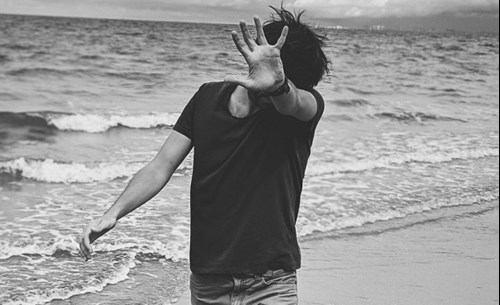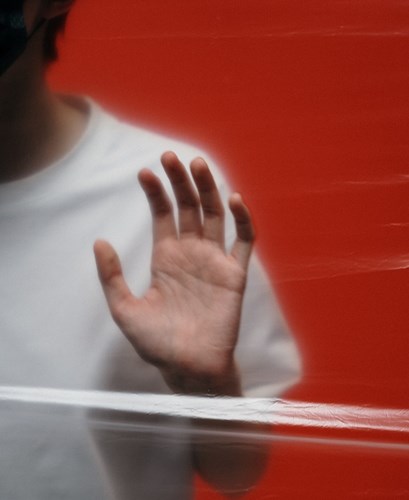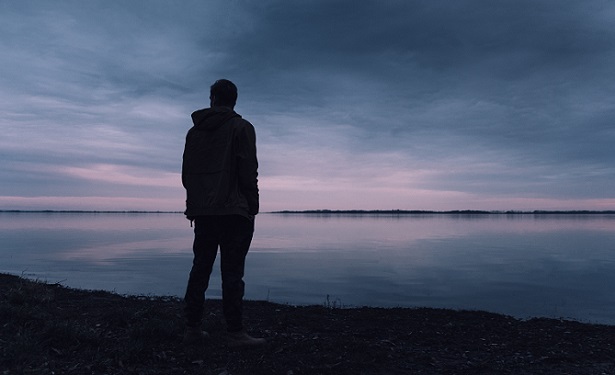Building Emotional Safety Nets for Men
Support networks with other men can help fend off the loneliness and isolation many men experience.
By Andrew Reiner for the New York Times

On the surface, Sean Kushigian and Jeff Compton didn’t have a lot in common before the pandemic.
Mr Kushigian, a 37-year-old banking analyst and self-described “extrovert,” surrounded himself with like-minded friends who didn’t discuss their problems and such “negative” feelings as fear and sadness, he told me, because they were a form of “weakness.”
Mr Compton, a 37-year-old chief technology officer for an online retailer and self-professed introvert, loved “being a good listener for friends’ problems,” he said.
Three months into the pandemic, these men — who live in different cities and have never met — both faced a common, defining struggle. Mr Kushigian experienced a depth of sadness and depression he had never before known, his alcohol consumption spiked and he began having suicidal thoughts.
Every time Mr Compton went into a grocery store, “I found myself weeping,” he said because the “panic and anxiety” he read on other shoppers’ faces mirrored back his own.
Mr Kushigian and Mr Compton are like many of the men I interviewed for my book on the need for greater emotional resiliency in boys and men. As both men have discovered, the solution to their loneliness and emotional isolation is something few men have but many need: emotional support networks — with each other.
It’s no coincidence that men are at the fore of the public health crises filling our newsfeeds. Think unemployment, opiate addiction and overdose, sexual violence, alcohol-related deaths and, of course, loneliness and spikes in suicide.
This was before the pandemic hit. In a 2020 meta-analysis, Indian sociologists suggested that the “excessive pressure to conform to traditional modes of masculinity increases the risk of men’s suicidal behaviour” amid the profound isolation of the pandemic.

We already know that men are far less likely than women to seek mental health help when they are struggling, even though studies prove that avoiding “negative emotions” leads to symptoms of mood disorders, including depression.
What we may not know: Men, it turns out, suffer from anxiety and depression far more than we realize or like to believe. The diagnostic scales commonly used speak to symptoms that typically manifest in women (e.g., sadness, sullen behaviour, loss of appetite).
In men, however, depression is often masked beneath greater anger and irritability, risky behaviours, alcohol and substance abuse and leaning more heavily into such sanctioned escape valves as exercise regimens and work.
A 2013 study published in JAMA Psychiatry revealed that, when metrics were used that considered these differences across gender lines, “men and women met criteria for depression in equal proportions: 30.6 percent of men and 33.3 percent of women … When alternative and traditional symptoms are combined, sex disparities in the prevalence of depression are eliminated.”
Perhaps not surprisingly, even when men do seek help, they are less likely to receive “adequate follow-up care” because health care professionals often misdiagnose their symptoms. These little-known breakthroughs change the conversation.
This jibes with the findings of a 2015 survey of 1,000 men conducted by Priory, a British mental health awareness organization, which found that 77 percent of men polled suffered from anxiety and depression. Forty percent of these respondents said that mental illness undermines their performance in jobs, parenting and relationships, but it would take thoughts of suicide or self-harm for them to consider seeking help.
All of this wouldn’t be such a problem if men were as effective as women at creating social support networks that double as therapy. (The gender disparity is evident in the numbers and types of support groups on Meetup.com.)
A 2018 study among 15 New Zealand men ages 20 through 40 published in the American Journal of Men’s Health observed that, while some men do have diverse social networks, compared with women they “typically have smaller social networks and less frequent exchanges of social support with family and friends.”

Many boys and men I interviewed for my book assured me they didn’t need support networks because they had a close friend or two in whom they confided. What these boys and men ultimately sought from male friends wasn’t emotional support; they used what I call “targeted transparency” for solutions to the few, carefully vetted problems they willingly shared.
The truth is, many men can count on close friends when it comes to counsel and physical safety — but not their emotional safety.
The 2016 book “The Psychology of Friendship” which explores the wide-ranging role of friends in our lives, observes that boys are “trained” to follow a form of competition early on that defines their male-male friendships, discouraging honest emotional sharing “at all cost while encouraging direct competition and ‘one-upmanship.’'
This ritualistic competition ultimately tends to create a profound deficit in many males, planting a deep seed of distrust in other boys and men. This is the reason Mr Compton — as is true for most men — has more female confidantes with whom he shares his deeper emotional life.
His male friends and family members “can’t be trusted,” he said, “to accept or engage with emotional honesty.” The last time he had male friends with whom he shared this kind of trust was during middle school.
The recent rise of men’s groups mirrors what researchers are discovering — that many men want safe spaces or “containers” as groups call them, where they can practice emotional transparency and diminish their isolation while relearning how to trust other men.
The 2005 Irish study “Death Rather Than Disclosure” found that emotionally distressed young men “desperately wanted closer social connections and support from family members and friends,” but “they feared being judged as emotionally vulnerable, weak and un-masculine.”
The lack of emotional networks has “negative implications for men’s social connectedness and mental well-being,” the researcher observed, putting younger men, especially, at “heightened risk of suicide.”
Mr Compton eventually sought therapy and joined a men’s group online last spring. When the group began meeting in-person outside, his anxiety was so overwhelming he vomited before the meetings. Eventually, he shared with the group the deeper reasons for his severe reaction — the perceived threats of violence and rejection from other males whenever he revealed emotional honesty.
To his surprise, one group mate texted Mr Compton when he missed the next meeting, checking in on him and thanking him for his disclosure.
“That was powerful for me, to have another man accept my honest, deeper feelings,” he said. His isolation is gradually abating, as is his anxiety, and he’s starting to realize that his inability to “connect with other men emotionally was stunting my ability to find peace within myself.”
Mr Kushigian also sought assistance — from a less conventional but increasingly popular outlet: online discussion forums geared toward mental health support. Online forums are “a good incremental first step toward reaching out for help,”
John Naslund, an instructor in Global Health and Social Medicine at the Harvard School of Medicine, told me. “They’re great for guys to build confidence with sharing and asking questions” about their struggles.
Such platforms also offer anonymity. Early qualitative research shows that they can help men create connection and learn important coping strategies from people with similar struggles, promoting “self-seeking behaviour, which is really important,” said Dr Naslund, who studies digital mental health. He added that reputable organizations, such as the National Alliance for Mental Illness and Mental Health America, are good places to find such groups.
As for Mr Kushigian, he spent the summer and autumn on the free platform tethr.men, which started last June and bills itself as the world’s first online peer-to-peer support group for men seeking emotional support. Matthew Zerker, the site’s founder, said it was developed in partnership with the Men’s Health Research Program at the University of British Columbia and the site HeadsUpGuys.org.

Mr Kushigian said he now feels “much more comfortable” discussing his struggles. And he has noticed a sharp decrease in emotional isolation — in large part because of the power of commiserating with other men, something missing from his usual friendships.
“I feel like I’m never alone now,” he said.
Andrew Reiner is the author of “Better Boys, Better Men: The New Masculinity That Creates Greater Courage and Emotional Resiliency.”

